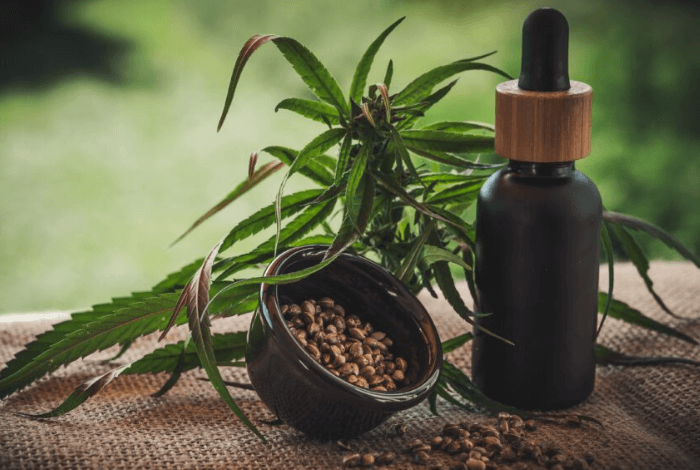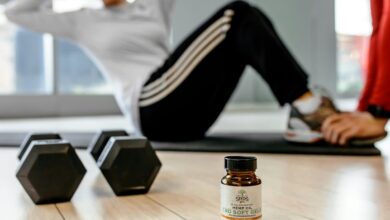Does Cbd Show on Drug Test Uk

The intersection of cannabidiol (CBD) use and drug testing presents a complex scenario for users in the UK. While CBD itself is not typically detected on standard drug tests, the presence of tetrahydrocannabinol (THC) in some products can complicate matters, especially given the legal limit of 0.2% THC. As the market for CBD continues to expand, understanding the nuances of product types and their potential implications for drug testing becomes essential. This raises critical questions about user safety and regulatory standards that warrant further examination.
Understanding CBD and THC
Cannabidiol (CBD) and tetrahydrocannabinol (THC) are two prominent compounds derived from the cannabis plant, each possessing distinct properties and effects on the human body.
CBD benefits include potential relief from anxiety, pain, and inflammation, while THC effects are primarily associated with psychoactivity and euphoria.
Understanding these compounds is essential for individuals seeking the therapeutic potential of cannabis without the intoxicating effects of THC.
See also: How to Make Cbd Salve
Legal Status of CBD in the UK
The legal status of CBD in the UK is defined primarily by the Misuse of Drugs Act 1971 and the European Union’s Novel Food Regulation, which categorize CBD as a non-controlled substance provided it contains no more than 0.2% THC.
These CBD regulations ensure compliance within the market, guiding enforcement, usage, and policies surrounding CBD products under established guidelines of legality.
Types of CBD Products Available
A diverse range of CBD products is available on the market, including oils, capsules, edibles, and topicals, each offering different methods of consumption and potential therapeutic benefits.
These CBD product types cater to various preferences, allowing individuals to choose the most suitable CBD consumption methods for their needs.
Understanding the options can empower users to make informed decisions regarding their wellness journey.
How Drug Tests Work
Drug tests are designed to identify specific substances within an individual’s system, employing various methodologies such as urine, blood, and hair testing.
Each type of test has its own detection window, which refers to the period during which substances can be reliably identified.
Typically, these tests focus on a range of controlled substances, including THC, the psychoactive component of cannabis, which raises questions about the implications of CBD use.
Types of Drug Tests
How various types of drug tests operate can significantly influence the detection of substances like CBD in the body.
Saliva tests, urine tests, hair tests, blood tests, breath tests, and sweat tests each have unique methodologies and detection windows.
Understanding these differences is crucial for individuals concerned about the implications of CBD usage in relation to potential drug testing outcomes.
Detection Window Explained
Detection windows for substances in the body vary significantly based on the type of test administered, the substance in question, and individual metabolic factors.
Different detection methods, such as urine or blood tests, exhibit varying testing accuracy.
Factors like frequency of use, dosage, and personal health can influence how long a substance remains detectable, impacting potential outcomes for users.
Substances Tested Typically
Typically, drug tests screen for a range of substances, including THC, amphetamines, cocaine, opiates, and benzodiazepines, among others.
These testing protocols often focus on specific substance categories to ensure accurate results.
Understanding which substances are targeted is crucial for individuals concerned about their rights and privacy, particularly in relation to the potential presence of CBD and its metabolites in their system.
Risk of THC Contamination
One of the significant concerns surrounding CBD products is the potential for THC contamination, which can lead to unexpected positive results on drug tests.
THC exposure may occur due to cross contamination during the manufacturing process or from using full-spectrum products.
Consumers must ensure the purity of their CBD products to mitigate such risks and safeguard their personal freedom and employment opportunities.
Full-Spectrum Vs. Isolate CBD
Full-spectrum CBD contains a range of cannabinoids, including trace amounts of THC, while isolate CBD is purely cannabidiol without any other compounds.
These compositional differences can significantly impact how each type of CBD interacts with the body and its potential to show on drug tests.
Understanding these distinctions is crucial for individuals concerned about drug screening outcomes.
Composition Differences Explained
Understanding the composition differences between full-spectrum CBD and isolate CBD is essential for consumers seeking to navigate the potential implications for drug testing.
Full-spectrum CBD retains various cannabinoids and terpenes due to comprehensive CBD extraction methods, while isolate CBD consists solely of pure CBD.
These CBD composition variations can impact effectiveness and user experience, making informed choices crucial for those concerned about drug test outcomes.
Drug Test Implications
The choice between full-spectrum and isolate CBD can significantly influence the likelihood of testing positive on a drug test, primarily due to the presence of other cannabinoids in full-spectrum products.
As drug test policies vary widely, understanding the potential employment implications is crucial for users.
Isolate CBD may offer a safer alternative for those concerned about inadvertent positive results.
Factors Influencing Drug Test Results
Various factors can significantly influence the results of drug tests, including the type of CBD used, the individual’s metabolism, and the sensitivity of the testing method employed.
Testing accuracy can vary widely, making user awareness essential for those considering CBD use.
Understanding these variables can help users make informed decisions, ultimately reducing the risk of unexpected results on drug tests.
Personal Accounts and Experiences
Personal accounts regarding CBD use and drug testing in the UK reveal a mix of positive test experiences and prevalent misconceptions.
Many individuals report unexpected positive results despite using products they believed contained only legal amounts of THC.
These experiences highlight the importance of understanding the nuances of CBD products and their potential implications for drug testing.
Positive Test Experiences
Numerous individuals have reported unexpected positive results on drug tests after using CBD products, highlighting the complexities surrounding cannabinoid consumption.
User experiences indicate that even products marketed as THC-free can lead to positive test outcomes due to trace amounts of THC or cross-contamination.
This has raised concerns among users about the reliability and safety of CBD products in relation to drug testing.
Misconceptions About CBD
Many users of CBD products harbor misconceptions about their contents and effects, often assuming that all CBD is devoid of THC and therefore safe from detection in drug tests.
This belief stems from prevalent CBD myths, overshadowing the potential risks associated with full-spectrum products.
While CBD benefits are well-documented, understanding the nuances of cannabinoid content is crucial for informed choices regarding drug testing.
Advice for CBD Users
Users of CBD should be aware of the potential for trace amounts of THC in certain products, which could lead to a positive drug test result.
To minimize risks, consider dosage recommendations and choose products with third-party testing.
Additionally, reviewing user experiences can provide valuable insights into product efficacy and safety, empowering individuals to make informed decisions regarding their CBD usage.
Resources for Further Information
To enhance understanding of CBD and its implications regarding drug testing, various resources are available that provide comprehensive information on product regulations, testing methods, and user experiences.
Key sources include governmental health websites and peer-reviewed publications that offer CBD research updates and testing guidelines.
Engaging with these resources ensures informed decisions related to CBD usage and potential drug testing outcomes.
Conclusion
The potential for CBD products to yield positive results on drug tests is a significant concern for users, primarily due to the presence of THC.
Notably, approximately 20% of CBD products on the market may contain THC levels exceeding legal limits, underscoring the importance of careful product selection.
This statistic emphasizes the necessity for consumers to choose reputable brands and consider third-party testing to ensure compliance with legal standards and minimize the risk of unexpected drug test results.




